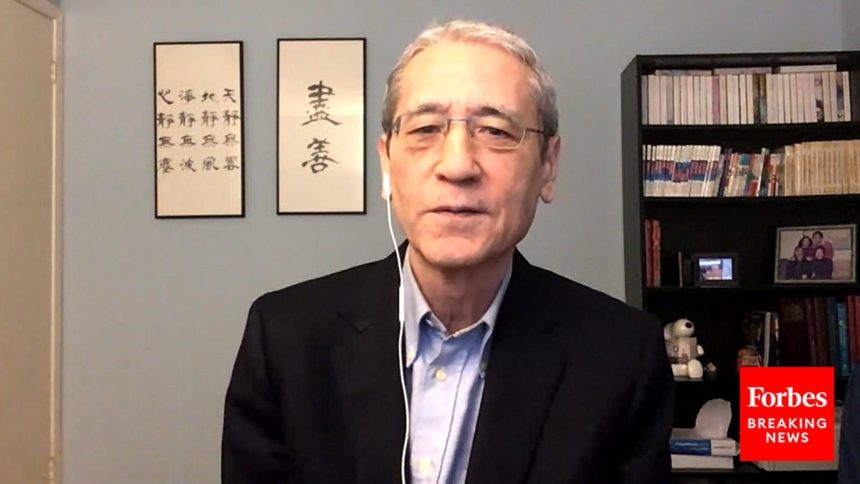Donald Trump’s recent pronouncements regarding the Panama Canal have ignited a controversy, raising concerns about the future of US-Panama relations and China’s growing influence in the region. Trump’s assertions, primarily disseminated via his Truth Social platform, accuse Panama of unfairly charging exorbitant fees for ships transiting the canal, essentially “ripping off” the United States. He has gone so far as to demand the return of the canal to American control, a proposition that has been met with strong resistance from Panama and sparked broader international debate. This controversy unfolds against the backdrop of already complex geopolitical dynamics, with China’s increasing presence in the region adding another layer of intricacy.
Gordon Chang, a prominent author and expert on US-China relations, provided insights into the situation during an interview with “Forbes Newsroom.” Chang clarified that while transit fees for the Panama Canal did indeed increase at the beginning of the year, this was a necessary measure to address existing issues within the canal’s operations. These increased fees, he argues, are contributing to essential improvements and maintenance of this critical waterway. He challenged Trump’s assertion, emphasizing that the fee increase was not an arbitrary act of exploitation but rather a necessary step to ensure the continued viability and efficiency of the canal, a crucial artery of global trade.
Trump’s pronouncements have not solely focused on transit fees. He has also voiced concerns about China’s growing influence in Panama and the canal zone. Chang acknowledges China’s substantial presence in the region, advocating for a thorough re-evaluation of the evolving China-Panama relationship. While acknowledging the validity of examining China’s influence, Chang cautions against the inflammatory rhetoric employed by Trump, which he believes is detrimental to US interests. He argues that Trump’s approach risks alienating Panama and driving it closer to China, inadvertently strengthening the very relationship Trump aims to scrutinize.
The implications of Trump’s remarks extend far beyond mere economic disputes. They touch upon sensitive historical and political nerves, particularly in Panama, where memories of past US intervention remain potent. Chang highlights the widespread anger and resentment Trump’s comments have generated, not only within the Panamanian government but amongst the broader populace. This negative reaction, he suggests, undermines the potential for constructive dialogue and cooperation between the two nations. By framing the issue in such confrontational terms, Trump risks jeopardizing the long-term strategic interests of the United States in the region.
The Panama Canal represents a critical juncture in global trade and geopolitics. Its strategic importance lies in facilitating the efficient movement of goods between the Atlantic and Pacific Oceans, significantly impacting global commerce. Control over this vital waterway has historically been a subject of intense international interest, with the United States playing a significant role in its construction and early management. The transfer of control to Panama in 1999 marked a significant turning point, symbolizing Panamanian sovereignty and control over its own territory. Trump’s call to reclaim the canal directly challenges this sovereignty, further exacerbating tensions.
The current controversy surrounding the Panama Canal highlights broader concerns related to China’s increasing global footprint and the evolving dynamics of US foreign policy. As China expands its economic and political influence, it actively seeks partnerships and investments in strategically important locations around the world. This includes engagement with countries in Latin America, traditionally considered within the US sphere of influence. The Panama Canal, with its strategic significance, naturally becomes a focal point for these evolving geopolitical interactions. Navigating this complex landscape requires a delicate balance of diplomacy, economic considerations, and strategic thinking. Trump’s pronouncements, rather than contributing to a constructive approach, appear to be escalating tensions and complicating an already intricate scenario. The long-term consequences of this approach remain to be seen, but they potentially pose significant risks to US interests in the region and globally.



